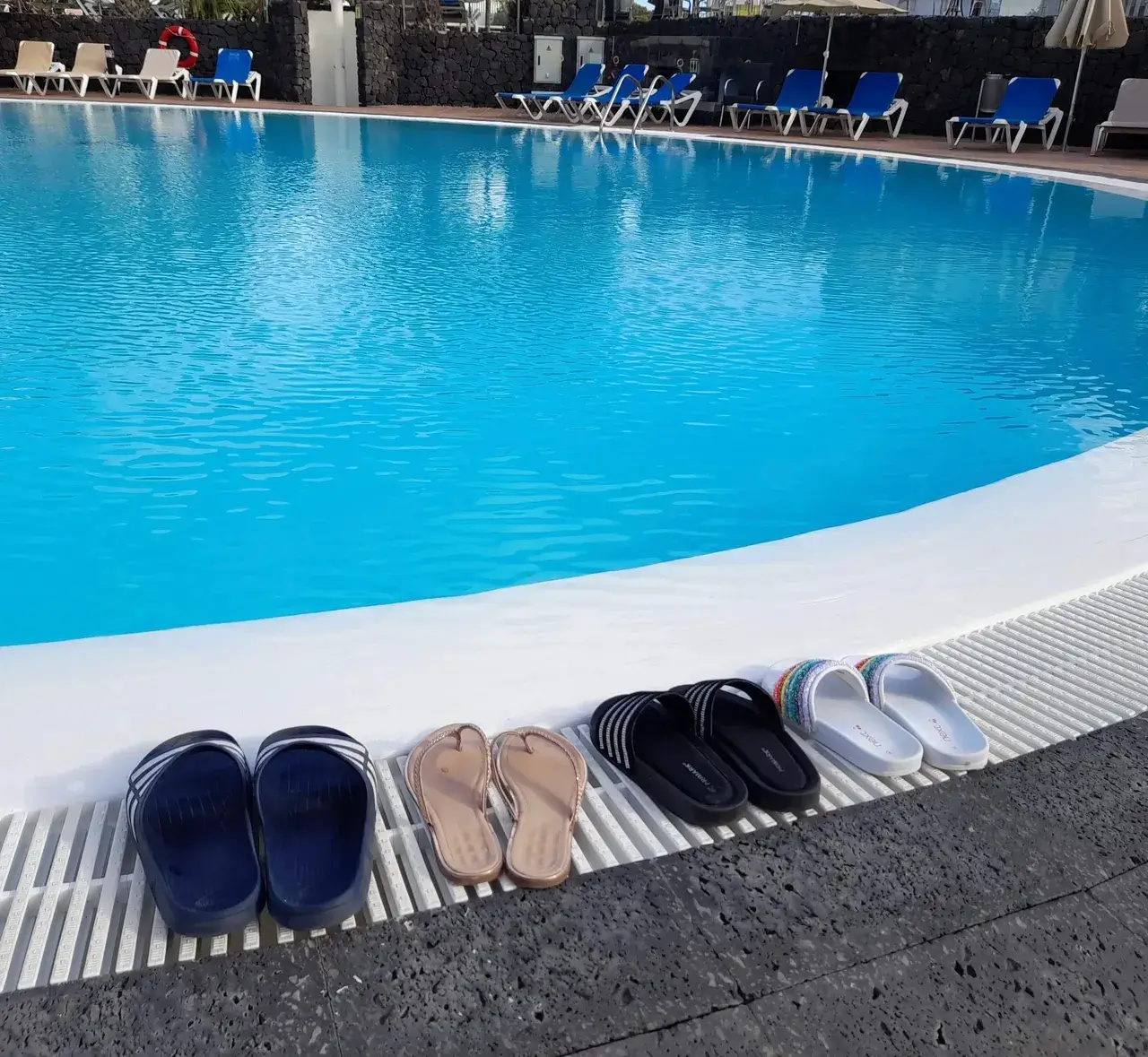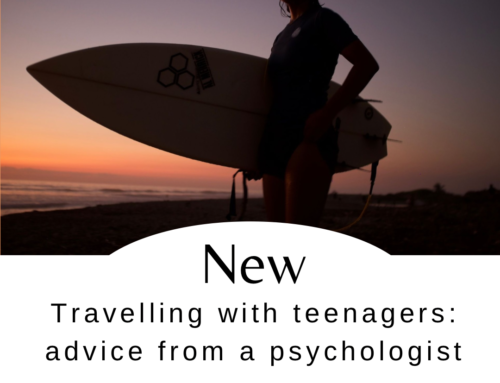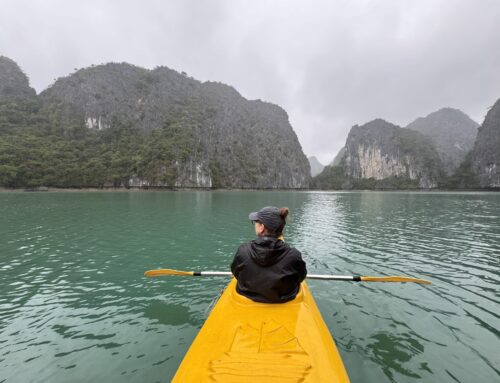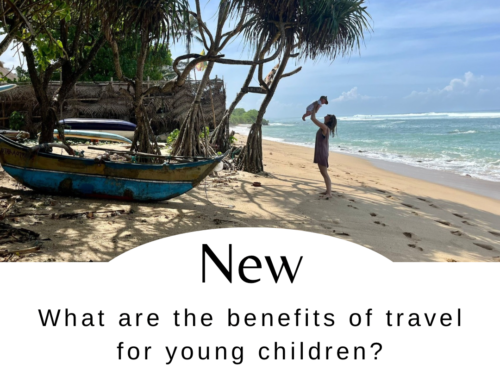Dr Daniel Weisberg, Clinical Psychologist & Managing Director of CAYP Psychology
Ah, holidays. The perfect chance to enjoy the golden beaches, the bustling cities or somewhere remote, off the beaten track. Whatever a holiday looks like, taking a break from day-to-day life provides the chance to reduce stress and recharge. You can have the opportunity to try new things – new places, new foods, new experiences.
Holidays can provide an opportunity to bond, with your family, friends, new people, or even yourself, and there are clear associations between holidays and improved motivation, attention and concentration, reduced blood pressure and improved sleep quality.
And then you remember that you have to take the children with.
I’m a clinical psychologist, and a dad of three – two boys, 7 and 1, and a girl, 4. A family holiday makes me think of navigating the bustling airports, providing a detailed analysis of the pros and cons of the plane’s window and middle seats in an attempt to avoid arguments, pinning my little one to my lap, managing my daughter’s travel sickness, constantly picking up the dropped pencils and toys, trying to ration the snacks to last the journey, and apologising to the passenger in front of my son for the constant kicks to his poor lower back. We’ve not even taken off yet. This is enough for me to think that a family holiday, with kids, is just too overwhelming and probably disastrous.
What are the benefits of travelling with children?
Holidaying with children can be one of the greatest pleasures and has significant emotional and psychological benefits for children.
Children are naturally inquisitive. They want to learn, experience new things, investigate new places. Holidays can provide a wonderful opportunity to do this with attention being given to new sights, sounds, touches, smells and tastes. Using all 5 senses is not something that we do regularly. Indeed, we often miss the richness of these details in day-to-day life, and travelling helps us to become more mindful.
Holidays can give families a chance to improve their relationships. These healthy relationships are of course beneficial for children’s self-esteem, confidence and health. Holidays help children to develop – perhaps learning to say “thank you” in a different language, self-settle in a new bed, or develop their confidence in playing with other children. Experiencing a new place can help children ask questions and problem-solve. For example, they can ask and find out “why are there chirping noises at night time but not in the day”, or “Why is it so much hotter here than at home?”. Holidays can help children to practice their skills of perseverance: swimming without armbands, walking up the hills, trying to win the races in the kids’ club, or breaking in to a coconut.
When children are on holiday, they can feel immersed or engaged in something, which is enormously important for positive wellbeing. There’s board games, cooking with new foods, following maps or translating information. And going on holiday can help foster feelings of accomplishment and self-worth. Children can achieve great things, such as crossing exceptionally high bridges, jumping into the sea, or navigate ski slopes.
In May 2017, a psychologist, Dr Oliver James, claimed that going to new places breaks children’s routines and does not provide the consistency that they require. He argued that this had the potential to be harmful to children’s emotional and psychological wellbeing. It is true that children thrive from consistency and predictability, but if some sense of routine is maintained and adults continue to provide the security and stability that their children expect, new places are far more likely to be good for children. In addition, children experience new things all the time, which may be challenging – they see a scary film or their social group pushes the rules. As long as trusted adults are available to help, children will learn how to deal with such situations, and this can help them to develop their resilience and confidence.
Tips of travelling with children
So, travelling with children certainly has benefits, but what about the overwhelming images of travel chaos. The single biggest piece of advice I can give: Plan and prepare. That is, plan ahead and be prepared.
That means, start with some research. Find out the costs, look up the transport links and determine what’s available for children, adults and families. Consider the local culture, religion and history. Don’t forget to think about the weather too, alongside the entry and vaccine requirements for the country you’re visiting. You could include your family in the research process can help them feel more included and prepared. Children who feel included and valued are more likely to stay calm and positive and less likely to be in a bad mood, grumpy, angry, resistant or stubborn, bored, or destructive.
Take the time to explain the journey. Allow them to share their opinion, concerns and questions. Children who feel heard and respected are more likely to be co-operative when travelling. But remember to be honest, open, clear and age-appropriate.
It is very sensible to create a pre-travel checklist. Your own anxiety will reduce, and the structure will help you feel more in control. A checklist is important because it ensures that you do not leave anything at home. Parents who are well-prepared for a trip tend to fare better than those who are not.
Give yourself plenty of time and prepare your hand luggage sensibly. Make sure you have your travel documents already in your bag. If you’re not prepared any travelling anxieties or stresses will certainly lead you to forgetting these. You’ll also feel much better should there be any glitches or delays, and you can ease your own and your family’s anxiety. As stress levels will be reduced, there’s a substantially increased chance that your children will be more compliant.
Ensure your children are hydrated and fed, in the airport, on the plane and throughout the trip. Drink plenty of water – ideally, take a traveling water bottle for each family member. If your children become dehydrated or too hungry, it increases the risk of them becoming sick, plus the inevitable behavioural challenges. Try to stick to healthy foods while traveling like fish, fruits, lean meats, healthy fats, lots of veggies, whole grains, low-fat dairy products, and water.
And try to keep some form of sleep routine. It does not really matter if the time children go to sleep changes during holiday. They just need to have enough, good quality sleep. This will help to ensure that they are rested, even-tempered, and more obedient. Getting enough good quality sleep can also help to keep your own temper at bay, your stress level low, and your mood stable.
During the day, you could set aside some “quiet time”. Many children need this chance to slow down and take a break. This could consist of sitting quietly somewhere and reading, listening to soft music, or playing a board game.
And throughout the holiday, your calmness is absolutely essential. Children’s mood and wellbeing is a reflection of their parents’ mood and wellbeing. Your anger, anxieties or mood sets the scene. You need to model the behaviours you want your children to exhibit. Show them how to handle delays, disappointments, and mishaps the right way. If everyone remains calm, even a situation that is going off the rails can turn into a positive experience. Indeed, one of the best ways to enjoy travelling with the family is to consider the positives of every situation, even the unpleasant or unexpected ones. Be thankful that you can spend this time with your children, even amid chaos. Your children will only be little for so long, so cherish these travel experiences.
It does not matter if this is your first trip with one of your kids or your tenth time with multiple kids; travelling with children can be challenging, if not overwhelming. But with planning and preparation, you have the opportunity to substantially boost your children’s emotional and psychological wellbeing. The benefits of holidaying with children are extraordinary. Enjoy every moment!
If you liked this article check out How much should I spend on my holiday? A psychological guide





